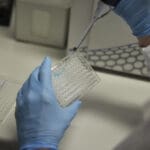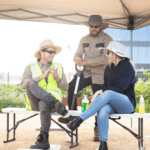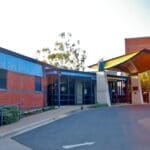- Home Josip Teklic
Josip Teklic

Josip is the Content Specialist at Cancer Council NSW.
Recent articles by Josip Teklic

Throughout May and June, Cancer Council is encouraging Australians to host a morning tea by gathering their friends, family, or colleagues for a cup of tea and a bite to eat while raising funds for Australia’s Biggest Morning Tea and help those affected by cancer. Did you know that one in three cancers can be prevented […]

A cancer diagnosis can bring uncertainty, especially when it comes to work. Whether you want to continue working during treatment, take time off, or adjust your workload, knowing your rights and options can help you make informed decisions. Here are 7 key things to know about balancing cancer and work. 1. Can I keep working […]

Breast cancer remains one of the most common cancers affecting Australians. While many cases are treatable, metastatic breast cancer (mBC) – when the cancer has spread to other parts of the body – remains a major challenge. Each year, around 3,000 Australians die of mBC. That’s why Professor Alexander Swarbrick and his team including Tony […]

At the Research Awards 2024, we had the pleasure of hearing from Professor Anna DeFazio AM, University of Sydney, who heads the gynaecological oncology research laboratory at the Centre for Cancer Research, the Westmead Institute for Medical Research. She is also the co-lead for the ovarian cancer stream at the Daffodil Centre*. The focus of […]

When faced with a cancer diagnosis, the last thing anyone wants to worry about is the financial impact. For many people this impact can be significant, causing additional stress and worry and even impacting treatment decisions. On top of this, rising costs of living over the last few years have worsened the financial impact for cancer […]

Australian’s love the outdoors. From the beaches to the parks, we enjoy being outside, staying active, and living healthy lives. But while we take pride in our outdoor culture, there’s something important we need to talk about: too many Australians are being diagnosed with skin cancer. The good news? Skin cancer is highly preventable, and […]

Among the nearly 21,000 people diagnosed with breast cancer each year, more than 2,000 of those people will die.
That’s why researchers are always looking for new ways to treat it and help people feel better.

Survival rates for some common types of cancer in children have not improved in more than 25 years.
That’s why new approaches to treatment are critical for a cancer free future. In particular, treatment that does not have long lasting effects.

Thanks to a petition with over 12,000 signatures, as of 1 July, cancer patients at the Riverina Cancer Care Centre no longer have to pay out-of-pocket expenses for radiotherapy and medical oncology treatments.

World Liver Day (April 19th) aims to raise awareness about liver conditions and promote good liver health.